Emily Browning Legend Interview
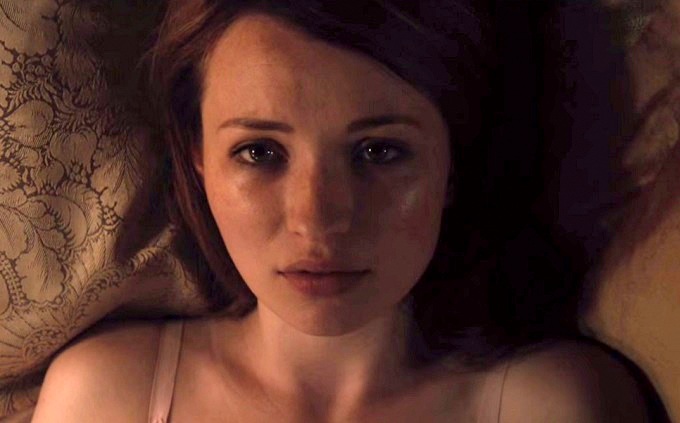
Emily Browning talks about playing Frances Kray in gangster biopic Legend starring Tom Hardy. The film charts the rise and fall of notorious London gangster twins Reggie and Ronnie Kray.
Q. When did you first hear about the Krays?
I honestly had never heard of them until I read the script. That’s my whole story.
Q. How did you research the role?
There’s really not as much information available about Frances as they Krays themselves. Which was actually rather nice for me because I didn’t feel like there was as much pressure on me. Because people don’t have as much of a strong idea about who Frances was as about the Krays. I had little bits and pieces. Brian actually managed to get me some of the letters Frances had written to Reggie. That was my lighthouse that was what I held onto and built her around that. I’m not very good at doing my homework either, for me a lot of the research was really about the accent the time ad place. Otherwise I kinda just did it I suppose.
Q. Emily the characters you’ve played including this one have collectively been raped, violently abused, orphaned, institutionalised, lobotomised and killed. What do you think are the dangers and value of evicting the victimisation of women on screen?
Jesus.. um… I think I’ve done seven films where the character I’ve played has been in a mental institution. That’s not intentional; I mean I don’t really know how that happens. I don’t have my career path planned out I just when something comes along and it makes me feel something I go for it. But I don’t see Frances as a victim really. I think she could have easily been written differently. She could have bene a bit wet, sad and pathetic. But I just think the way that Brian wrote her and the way that I wanted to play her was as a human being. She’s complex. I mean obviously her story comes to a tragic end and she’s also quite sad, but I think she’s quite ballsy and she has the guts to stand up to the boys when I don’t know if many people would have had that strength. I don’t see her as a tragic character by any means.
Q. Was it hard for you acting opposite Tom playing two roles?
It wasn’t really an issue for me. I didn’t have to think about the mathematics of it I just got to do everything twice. Tom was there as Reg and then he went away for a bit and he was there as Ron. It was kind of a breeze for me to be honest.
Christopher Eccleston Legend Interview
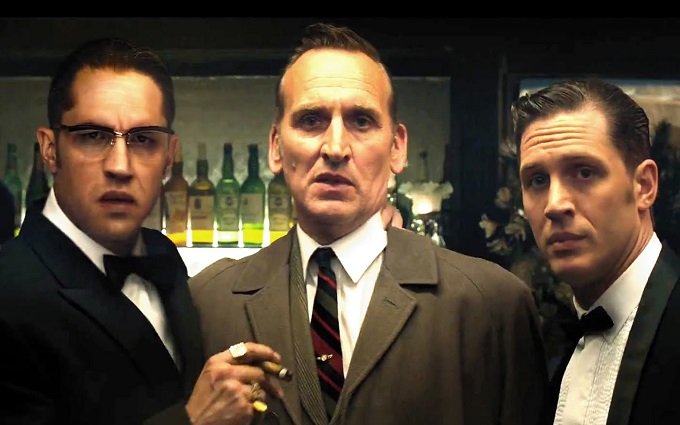
Doctor Who star Christopher Eccleston talks about playing notorious policeman Nipper Read in the Krays biopic Legend starring Tom Hardy as both gangster twins Ronnie and Reggie. The film directed by Brian Helgeland charts the rise and fall of the infamous London criminal brothers.
Q. When did you first hear about the Krays?
Who are the Krays? I heard about them when I was a teenage boy like Tom really. There’s a point where teenage boys get very interested in gothic violence and I remember going to the true crime section a lot around 14 I’d think. I have twin brothers so obviously I was particularly interested in it.
Q. How did you research the roles?
To quote David Bowie “ I threw my homework on the fire and took a car downton”. I think there’s a lot of bollocks spoken about research. I think that it’s make believe. I felt what Brian had written sent a very clear message on what he wanted. So I relied entirely on what Brian had written and wat happened on set. Me and Brian did have a number of conversations about what kind of a dog Nipper would have been. I think we decided on a Bloodhound. Because according to Brian, this may be complete fantasy, but he says a Bloodhound will run until it dies. It will chase a criminal or its prey until its heart bursts. I threw in Malvolio from Twelfth Night, because I saw Nipper as a man who was absolutely puritanical, a man of the fifties who did not want the sixties to happen. Did not want the Krays to have sex and fun. Did not want the Rolling Stones to have fun. He was the man form the previous 10-20 years. No homework, just drugs with Brian Helgeland.
Q. Why do you think Nipper became so obsessed with the Krays?
I seized on the class theme that Brian presented, in that he believed that they were from similar backgrounds and he felt a good deal of class shame about what they were doing. I think Nipper was obsessive generally I think you probably have to be. I think what’s interesting about Nipper was surviving as a northern copper in the metropolitan police department. That must have been difficult. I think he was a workaholic, I think he was obsessive. He was also humiliated as we show in the film on numerous occasions by Rona and Reg and he didn’t forget that. He got there in the end.
Q. Was it hard for you acting opposite Tom playing two roles?
It was a deeply humbling experience in stereo. I think I’m not sure I really experienced it, there’s one sequence where Nipper is jammed between Reg and Ronnie. But I don’t think we had time on the day. I didn’t have time for him to change so we did it with the stand in Jacob. I think 99% of my scenes were with Reg. I had one scene with Ron and that was a revelation. That was very interesting because I’d only ever met Tom as Reg then suddenly there was Ron. They were completely different and having twin brothers in real life that was very interesting to see what an actor was doing with both roles. I was very jealous.
Q. Did you enjoy the period costume?
I looked exactly like my paternal grandfather and he was a frightening man. I was struck by that when I put on the gear and looked at myself in the mirror. I actually based it on him. I based it on his effect on me as a child and his basic outlook as I imagined it. So it was helpful.
Brian Helgeland Legend Interview
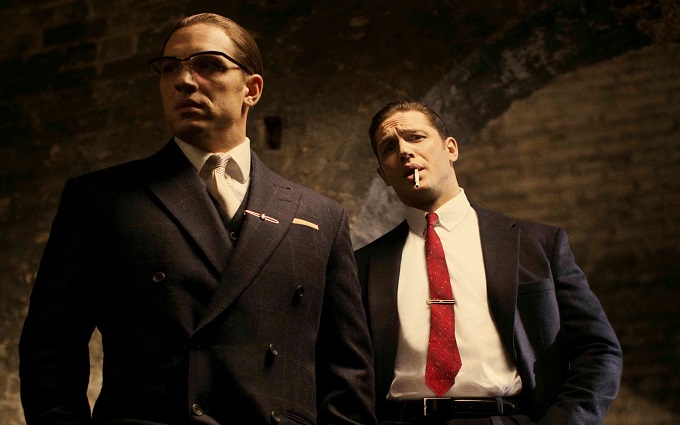
Director Brian Helgeland talks about crime biopic Legend starring Tom Hardy as London’s infamous gangster twins Ronnie and Reggie Kray.
Q. When did you first hear about the Krays?
I can tell you it was in 1988. I had been asked to go on tour with Robert Plant and Jimmy Page, I heard about them then form a guy who was involved with the ban. He told me some stories about them. I was very interested in them because when I first heard the name Krays I thought it was like a wild animal, I didn’t know what it was, but I quickly learned. It was just a fascinating thing it wasn’t’ like I knew I wanted to do a film about them until I was contacted by working title many years later.
Q. Does the connection between celebrity and organised crime still exist in that way?
I think you always meet people you could never meet otherwise. Usually in Hollywood they’re arms merchants who have a lot of money ad want to launder it. So usually yeah you meet interesting characters who you would never normally meet if you had a normal job.
Q. How much of the film is anecdotal and how much is fantasy?
I felt like, the book ‘profession of violence’ had been optioned. I felt obligated to try and cover as much as I could. I read a lot of books, met people they knew as adults. I read a lot of bad stuff and schlocky material. What was interesting was how extreme it all was, between the accounts of them helping old ladies across the street or nailing people to the floor. I never came across people wo had such an extreme mythology behind them. I don’t know what the truth is but I thought trying to find something in the middle of all that would be the truest thing I could do. I was interested in humanizing them in a way.
Q. What was the toughest challenge of having Tom play both roles?
We tried to not make the camera to aware of what was going on, to not make it too aware of what he was doing. So it was a lot of little things really. There were some things we found were just untenable in terms of how much time they took up. Motion control shots and stuff like that. We wanted it to go away really, we had a couple of tricks and we used them over and over again without getting too fancy.
Q. The Krays mother has only a very small presence in the film despite being a big character in their lives. We’re you concerned about having her reduced to such a small role in the film?
We had Frances and her mom as a child and mother relationship and I thought that was kind of enough for the film. I mean so much has been done about the mom and the boys that I sort of wanted to stay away from it in a way. That’s really been done to death. We had a very interesting scene with the three of them. But also I didn’t really buy into it. I mean there’s been so much about it but every gangster story I know the boys are close with their mom, so I didn’t especially take it as something that was unique to the Krays. Maybe that’s not true and that’s just my own point of view, but I thought that Frances and her mom covered things in a way that meant I didn’t need to look into it with the boys and their mom.
London Film Festival Archive Gala Announced
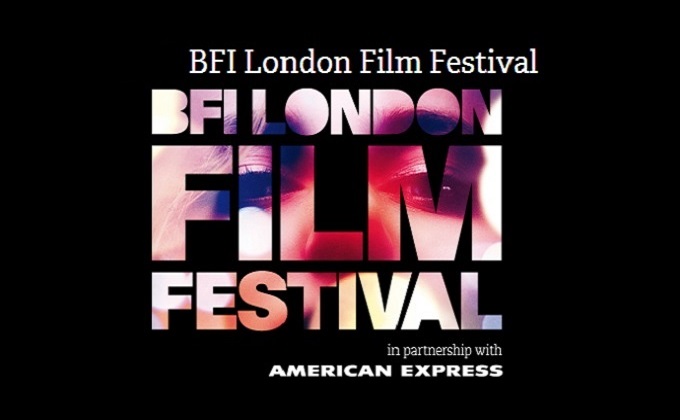
The Archive gala screening at the 59th BFI London Film Festival in partnership with American Express®, on Friday 16th October 2015 at the Odeon Leicester Square, will be the world premiere of a new restoration of Anthony Asquith’s Shooting Stars (1928). Asquith’s first film as co-director and scriptwriter, Shooting Stars is a fascinating drama set behind the scenes at a contemporary film studio. Newly restored by the BFI National Archive, Shooting Stars will be presented with a new live score by John Altman, BAFTA and Emmy award-winning composer whose work includes Titanic and Goldeneye .
Shooting Stars is a dazzling debut which boasts a boldly expressionist shooting style, dramatic lighting and great performances from its leads. Annette Benson (Mae Feather) and Brian Aherne (Julian Gordon) play two mis-matched, married stars and Donald Calthrop (Andy Wilkes) a Chaplin-esque star at the same studio, with whom Mae becomes romantically involved. Chili Bouchier, Britain’s first sex symbol of the silent era, plays a key role as an actress/bathing beauty, an attractive foil to the comic antics of the comedian. The film manages to operate as a sophisticated, modern morality tale, while it’s also both an affectionate critique of the film industry and a celebration of its possibilities. It teases the audience with its revelations of how the illusions of the world of film-making conceal ironic and hidden truths.
Asquith (son of the former Prime Minister Herbert Asquith) had privileged access to see Chaplin making The Circus on a trip to Hollywood and he had also been behind the scenes at German film studios. Both influences are clearly seen in the film. Asquith went on to have a hugely successful international career in the sound era with films such asPygmalion, The Importance of Being Earnest, The Browning Version and The VIPs.
The film has been meticulously restored by a team of BFI experts from materials held in the BFI National Archive, making this the definitive restoration to stand alongside those of previous BFI restorations of Asquith’s Underground (1928) and A Cottage on Dartmoor (1929).
Robin Baker, Head Curator, BFI National Archive said, “We are delighted to be showcasing this remarkable film in a brilliant new restoration achieved after months of work from our dedicated teams at the BFI. Shooting Stars is a fascinating debut from one of Britain’s greatest film-makers and to see it with a newly commissioned score performed live in the Art Deco splendour of the Odeon Leicester Square promises to be a very special experience.”
The new score by composer, John Altman, has been written for a twelve piece ensemble playing multiple instruments. It is full of a lively jazz influence, inspired by some of the sheet music for the popular song “Ain’t She Sweet” which is seen on screen in the film. Altman is both an authentic and accomplished jazz musician as well as a BAFTA and Emmy award-winning composer of music for the big screen. He has composed, orchestrated and conducted for many films including the period music for James Cameron’sTitanic, and he composed the tank chase sequence in the James Bond film GoldenEye and won the Anthony Asquith Award for Achievement in Film Music for Hear My Song.
John Altman said,
“For the new score I have been inspired by dance band sounds and Duke Ellington in 1927. It’s not a slavish period recreation but I have tried to find an appropriate way of reflecting some of the plot twists and ironic deceptions through a series of interlinked musical themes. The score will be played by a very versatile group of musicians and we will end up using almost as many instruments as a complete orchestra through the whole film. I hope that the music will carry audiences effortlessly through the emotional highs and lows of this brilliant film.”
There were famously two opposing reviews published in Variety, one British, one American, with the British review disparaging the film and the American giving it a strong thumbs-up. The film is now however fully appreciated as one of the few undisputed masterpieces of British silent cinema. Only Alfred Hitchcock has a higher critical reputation than Asquith in this period of late silent British cinema.
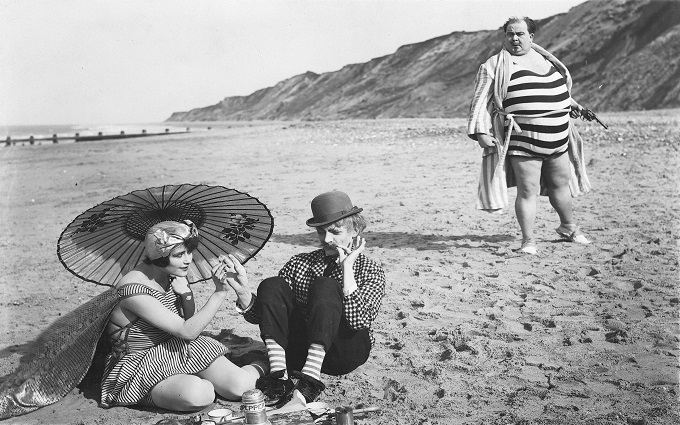
Paper Towns Review
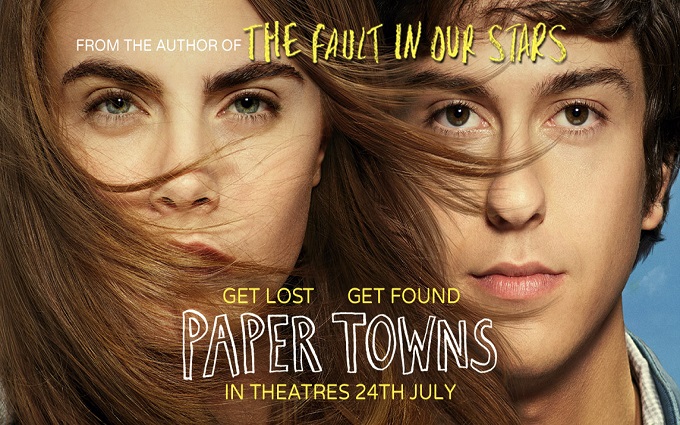
The Plot
A teenage boy on the cusp of finishing high school reconnects with the beautiful and mysterious girl next door for once crazy night. When she suddenly vanishes he and his friends embark on a strange and life changing journey to find her.
The Good
John Green reduced global audiences to tears with the painfully bittersweet The Fault In Our Stars, thankfully Paper Towns has a more whimsical and less tragic approach to teen romance. Green’s books translate well to screen and his knack for creating sincere emotions and drama remains firmly intact.
Delevigne is cleverly cast as Margo , the films missing girl and mysterious holy grail. Her real life fame and notoriety lends her character an instant aura of intrigue and allure. It would have been far more challenging for an average unknown actress to achieve this in really just a handful of scenes.
Nat Wolff gave a scene stealing turn in The Fault In Our Stars and this time he carries Paper Towns capably as everyman adolescent hero Quentin. His average boy next door appearance and deliberately awkward demeanour ensures he brings a credible reality to an increasingly elaborate adventure.
In truth it’s actually the film’s supporting cast that prove its most effective surprise. Austin Abrams and Justice Smith play Quentins’s best friends. The convincing chemistry between this trio of likeable social underachievers is actually the real heart of the story.
It’s refreshing and endearing to see a portrayal of teenage friendship that doesn’t resort to a lazy form of self-aware irony and witty cynicism. This isn’t just another batch of absurdly wise beyond their year’s high schoolers clearly written by adults. There’s actually something innately authentic and heartfelt about their good natured an unashamedly awkward co-dependence.
The affectionate bond and playful banter between the film’s unlikely heroes adds both humour and heart to an already intriguing mystery. It makes it so much more enjoyable to join the characters on their literal and metaphorical ride. The combination of suspense and sentiment holds audience’s attention firmly.
The Bad
Though she serves as an effective catalysts for the films story, in truth Delevigne has surprisingly little screen time for a film largely being marketed on the back of her ‘it girl’ supermodel status. Likewise, her character Margo will be a convincingly alluring dream girl for some people, for others she will merely be infuriatingly selfish and irritating. The virtues of Delevigne’s on screen presence, much like her real life persona, will divide opinions dramatically. In truth there’s still not much evidence available yet to truly judge her acting prowess or potential.
Nat Wolff is likewise promoted from scene stealing sidekick duties to leading man status. While his awkwardness is clearly an intentional character trait it does mean that at times he lacks a little charisma and personality.
It’s unfair but inevitable to compare the romantic leads in Paper Towns with those of Green’s recent global box office phenomenon The Fault in Our Stars. Sadly the mostly missing Delevigne and the deliberately average Wolff can’t match that iconic level of heart-breaking romantic chemistry.
Though the film does well to create a real sense of mystery and purpose, it builds to a conclusion that without being too specific won’t be universally satisfying. The film is exactly what it intends to be, but that won’t be to everyone’s tastes.
The Ugly Truth
Paper Towns is a sincerely sweet and pleasantly amusing romantic comedy, thanks in the most part to its enjoyable supporting cast. Delevigne’s mostly absent leading lady and the film’s conclusion will likely divide audience’s opinions, but aren’t enough to make them ignore the film’s other obvious charms.
Review by Russell Nelson